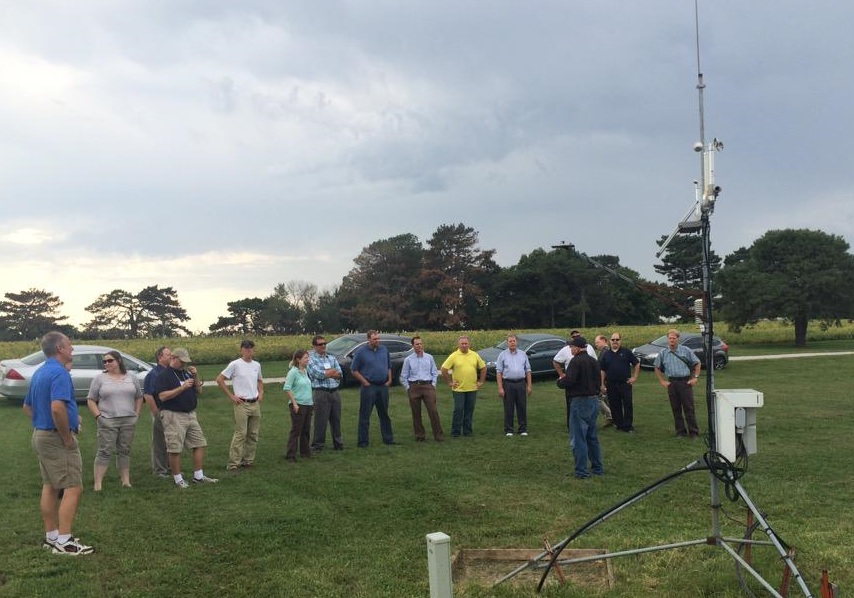
The High Plains Regional Climate Center recently organized a workshop on regional climate services for National Weather Service employees who came from Colorado, Iowa, Missouri, Nebraska, South Dakota and Wisconsin.
"HPRCC staff highlighted some of their tools and services with presentations and a three-hour hands-on training with the Applied Climate Information System Web Services (ACIS-WS), which allows users to create custom climate data requests," said Natalie Umphlett, regional climatologist. "NWS participants shared their experiences working in climate services through roundtable discussions, discussing climate decision support services in particular."
Workshop objectives included: establishing and building a collaboration among the group through interaction at the workshop; strengthening the relationship between regional climate centers and NWS weather forecast offices; and educating participants on available climate products and tools, and encouraging participants to reach out to the HPRCC and the NDMC when they have questions.
Staff from both the HPRCC and the National Drought Mitigation Center, in addition to representatives from the National Oceanic and Atmospheric Administration and the Nebraska State Climate Office, led workshop activities from Sept. 22-24.
"It wasn't all business, though," Umphlett said. "The participants got a chance to enjoy the fresh fall air and to visit an Automated Weather Data Network station here on campus. They also enjoyed some ice cream at the UNL Dairy Store."
The workshop was made possible by a grant from the NOAA Central Region Collaboration Team. Funding was approved at the end of 2014 and planning began soon after.
"In the end, everyone walked away with deeper connections to one another and many ideas for further collaboration between the NWS, HPRCC and NDMC," Umphlett said.
The HPRCC has applied for funding to expand next year's workshop to include participants from other offices in states such as Montana, North Dakota and Wyoming.
"The HPRCC would like to build relationships with its climate partners in the region," Umphlett said. "There are several NWS Weather Forecast Offices in the six-state region served by the HPRCC, and their expertise is valuable because they provide a local perspective on climate conditions, and are in a better position to interact with communities and the general public in their County Warning Areas."
— Mekita Rivas, Natural Resources